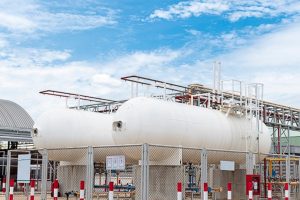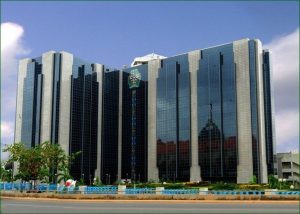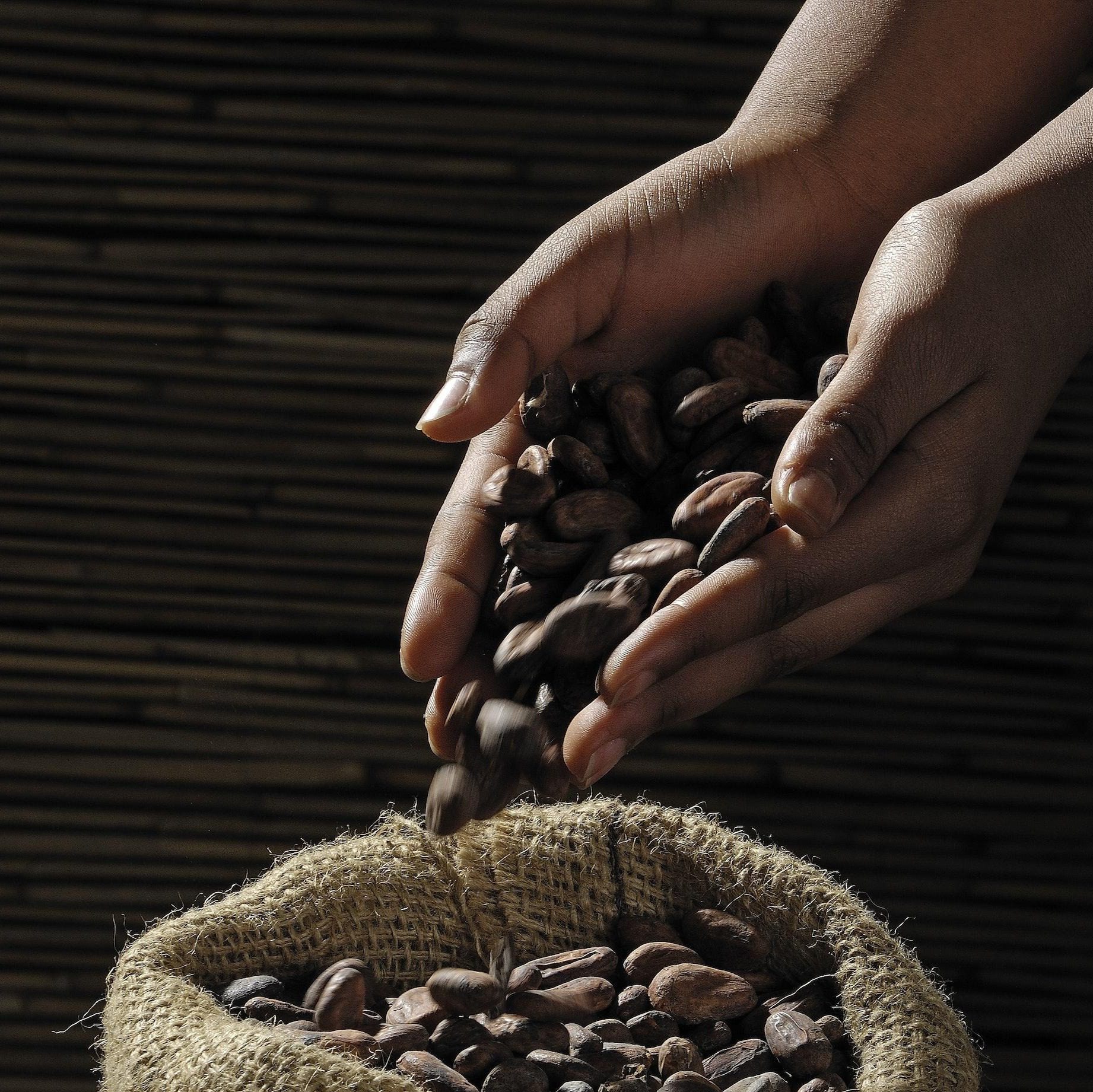OIL REFORMS DRIVE $18.2BN DEALS – FG
Nigeria’s oil and gas sector is experiencing a renewed wave of investor confidence, with fresh upstream reforms unlocking $18.2bn worth of Field Development Plans for 2025, while crude oil losses have dropped to their lowest levels in over a decade. The Chief Executive of the Nigerian Upstream Petroleum Regulatory Commission, an agency of the Federal Government, Gbenga Komolafe, disclosed these milestones on Tuesday at the Africa Oil Week in Accra, Ghana. In a presentation titled Nigeria’s Competitive Reform Agenda for Unlocking Potentials in Upstream Oil & Gas, Komolafe said the reforms were anchored on President Bola Tinubu’s Renewed Hope Agenda and the Petroleum Industry Act of 2021, which together provided governance, fiscal clarity, and institutional alignment. According to Komolafe, the commission approved 28 new FDPs in 2025 alone. These projects will unlock 1.4 billion barrels of oil and 5.4 trillion cubic feet of gas, adding an expected 591,000 barrels of oil per day and 2.1 billion standard cubic feet of gas per day. This output is expected to push Nigeria closer to its target of producing over three million barrels of crude oil per day. “These FDPs, with $18.2bn in capital expenditure commitments, underscore Nigeria’s transformation into one of the most dynamic and attractive upstream investment frontiers in the world,” Komolafe said. He highlighted the commission’s achievements since its establishment under the PIA, including the rollout of 24 transformative regulations—19 of which have already been gazetted. A comprehensive Regulatory Action Plan, he added, has dismantled entry barriers, streamlined licensing, and promoted transparency in a sector once plagued by uncertainty. The NUPRC boss pointed to landmark investment decisions as proof of growing investor confidence. These include the $5bn Final Investment Decision on the Bonga North deep offshore development, the $500m Ubeta Gas Project, and anticipated FIDs on projects such as HI NAG Development, Ima Gas, Owowo Deep Offshore, and Preowei Fields. President Tinubu has also approved five major acquisition deals worth over $5bn, creating new opportunities for indigenous players to expand their footprint in the industry. Komolafe said licensing rounds have recorded strong uptake thanks to reforms. The 57 Petroleum Prospecting Licence awards in 2022, the 2022 Mini-Bid Round, and the 2024 Licensing Round all drew exceptional interest, with 27 of 31 blocks offered in 2024 successfully awarded. Adjustments to signature bonus requirements and other measures were introduced to make participation more accessible and competitive. Rig activity has also surged, climbing from just eight rigs in 2021 to 43 as of September 2025—a clear indicator of renewed investor engagement. Alongside rising investment, Nigeria has also recorded significant progress in tackling crude oil losses, a long-standing challenge for Africa’s largest oil producer. NUPRC figures show that between January and July 2025, losses dropped by 50.2 per cent to 2.04 million barrels, averaging 9,600 barrels per day. This represents the lowest level since 2009, when daily losses averaged 8,500 barrels. The new figures mark a major improvement compared to the 4.1 million barrels lost in 2024, and a sharp decline from the record 37.6 million barrels lost in 2021, when theft and sabotage cost the country an average of 102,900 barrels per day. Komolafe attributed the decline to tightened regulations, enhanced surveillance, and collaborative security frameworks introduced under the current administration. According to Komolafe, the combination of reforms, transparency, and strengthened governance has repositioned Nigeria’s upstream sector as a competitive global destination. “These achievements affirm that Nigeria is entering a new era of clarity, competitiveness, and confidence,” he said. Industry watchers note that if the trajectory continues, Nigeria could simultaneously boost production, attract billions in fresh investments, and consolidate its progress in curbing crude oil theft—a development that would significantly strengthen the country’s fiscal position. With $18.2bn in FDPs approved and crude losses at historic lows, Nigeria’s upstream oil and gas industry appears to be regaining momentum, offering renewed hope for economic stability and growth.

FX INFLOWS, RESERVES BOOST NAIRA TO N1,497/$
The Nigerian naira on Monday appreciated against the United States dollar, trading below the N1,500/$ threshold for the first time in over six months. Data from the Central Bank of Nigeria showed that the domestic currency closed at N1,497.46/$, compared to its previous close of N1,501.49/$, marking a 0.27 per cent gain. The last time the naira traded below the N1,500/$ level in the official market was between February 24 and March 4, 2025. The recovery comes after a week in which the naira repeatedly tested the N1,500/$ mark, posting its lowest intra-day rates just above that threshold. The positive momentum was also mirrored in the parallel market, where the naira strengthened by 0.33 per cent to settle at N1,535/$, according to data from CardinalStone Research. Market reports indicated that the naira gained 0.98 per cent week-on-week to close at N1,501.50/$ in the official window, while the parallel market firmed by 0.33 per cent to N1,535/$. According to the Coronation Weekly Update, the official exchange rate ended the week at a ₦35.50 or 2.23 per cent premium to the parallel market rate, suggesting a narrowing gap between both markets. The update also showed that total foreign exchange inflows into Nigeria rose to $550.90 million last week, slightly lower than the $567.20 million recorded in the previous week. Foreign Portfolio Investments (FPIs) dominated the inflows, accounting for $303.8 million or 55.15 per cent. Exporters contributed 17.61 per cent, non-bank corporates 17.57 per cent, other corporates 4.32 per cent, Foreign Direct Investments 3.39 per cent, the CBN 2.36 per cent, and individuals 0.60 per cent. Analysts say the currency’s appreciation has been largely supported by strong foreign portfolio inflows, healthy external reserves, and continued policy interventions by the CBN. AIICO Capital noted that ample dollar liquidity from FPIs, oil exporters, and offshore flows underpinned an offered market tone throughout last week. “The FX market is expected to maintain its current stability, supported by the CBN’s continued policy adjustments and fiscal efforts to ensure adequate liquidity,” AIICO analysts said. Similarly, Cowry Asset Management Limited said the naira’s recovery is being driven by steady dollar inflows, CBN interventions, and stronger reserves. However, it warned that renewed speculative activity could still trigger volatility. “We expect the naira to maintain its current trend of appreciation, supported by steady dollar inflows, CBN interventions, and stronger external reserves. However, renewed speculative activity could spark volatility,” the firm stated. Experts project that the naira will likely trade within a narrow band in the short term. Coronation analysts highlighted that the stability could be sustained by steady inflows and healthy reserves but cautioned that pressures may re-emerge if portfolio flows moderate or if foreign exchange demand surges ahead of the year-end festive season. In the past week, Nigeria’s gross external reserves rose to $41.69 billion as of Friday, reflecting consistent daily accretions. This upward trend in reserves is expected to further boost market confidence and support the CBN’s efforts to stabilise the naira. Despite these gains, analysts warn that the sustainability of the recovery depends on structural reforms, diversification of FX sources, and policies that attract more durable foreign direct investments rather than short-term portfolio flows. For now, the naira’s return below ₦1,500/$ signals improved market confidence, but the weeks ahead will determine if the domestic currency can sustain its resilience against external pressures and speculative tendencies.
NGX MARKET CAPITALISATION RISES BY N704.38BN
The Nigerian Exchange opened the week on a positive note as market capitalisation rose by N704.38bn to close at N89.6tn on Monday. This represents a 0.79 per cent growth compared to N88.92tn recorded at the close of trading on Friday, September 12. Similarly, the benchmark All-Share Index gained 1,113.31 points, or 0.79 per cent, to settle at 141,659.00 against the 140,545.69 recorded previously. This performance extended the market’s one-week gain to 1.62 per cent, although it reflected a four-week loss of 2.05 per cent. Year-to-date, the ASI has appreciated 37.63 per cent. Market activity was buoyant as investors traded 555.12m shares worth N24.08bn in 31,566 deals. When compared with Friday’s session, this reflects a 28 per cent improvement in volume, a 49 per cent increase in turnover, and a 33 per cent rise in the number of deals executed. Livingtrust Mortgage Bank led 32 gainers, appreciating 9.96 per cent to close at N5.08 per share. It was followed by E-Tranzact International, which gained 9.7 per cent to end the day at N16.40, while Regency Alliance Insurance rose 9.64 per cent to N1.82 per share. Northern Nigeria Flour Mills advanced 8.62 per cent to close at N93.90, while Unilever Nigeria gained 8.41 per cent to N72.80 per share. On the flip side, McNichols led 30 losers, shedding 9.9 per cent to close at N3.55 per share. Honeywell Flour Mill followed with a 9.13 per cent loss at N20.90, UAC of Nigeria dropped 8.01 per cent to N67.15, while Omatek Ventures dipped 7.58 per cent to N1.22 per share. UAC of Nigeria also emerged as the most actively traded stock, with 67.14m shares valued at N4.49bn. It was trailed by Regency Alliance Insurance with 57.15m shares, Access Holdings with 36.59m shares, and Lasaco Assurance with 31.28m shares. In terms of value, Geregu Power led with N10.27bn in transactions, followed by UAC of Nigeria with N4.49bn, Zenith Bank with N1.06bn, Access Holdings with N988.76m, and Guaranty Trust Holding Company with N738.53m. Sectoral performance showed mixed results. The Consumer Goods Index led with a gain of 3.54 per cent, extending its year-to-date return to 90.36 per cent. The Main Board Index rose 1.28 per cent, while the Pension Index improved 0.14 per cent. The Banking Index added 0.05 per cent as Zenith Bank, Access Holdings, and GTCO supported value turnover. However, the Industrial Index closed flat. Investors on the Nigerian Exchange ended last week on a bullish note as sustained buying interest in large-cap stocks lifted the market. The benchmark All-Share Index appreciated 1.12 per cent to close at 140,545.69 points, while market capitalisation rose by N936bn to settle at N88.92tn. The rally was buoyed by renewed investor confidence and increased activity across key sectors. According to the NGX weekly market report, all sectoral indices closed positive except the Asem index, which remained flat. Market turnover for the week stood at 3.19bn shares worth N99.69bn in 132,711 deals, higher than the previous week’s 3.12bn shares valued at N90.30bn traded in 118,018 deals. This reflected growth in volume, value, and number of transactions, underscoring stronger investor participation. The financial services industry maintained its dominance on the activity chart, accounting for 2.28bn shares valued at N38.81bn in 57,934 deals, representing 71.59 per cent and 38.94 per cent of the total equity turnover volume and value, respectively. The consumer goods industry followed with 198.39m shares worth N12.84bn in 17,508 deals, while the oil and gas industry ranked third with 186.74m shares valued at N35.17bn exchanged in 8,811 deals.

NGX SHEDS N71BN AS STOCK MARKET DECLINES
The Nigerian Exchange closed Tuesday’s trading session on a negative note as the equities market shed about N71bn in market capitalisation, following losses recorded in several bellwether stocks. At the close of trading, the All-Share Index fell by 112.22 points, or 0.08 per cent, to settle at 141,546.78 basis points compared with 141,659.00 points recorded in the previous session. The market capitalisation also declined from N89.671tn to N89.600tn, representing a loss of N71bn for investors. The downturn was driven by sell-offs in stocks such as Austin Laz & Company, Deap Capital Management & Trust, FTN Cocoa Processors, Regency Alliance Insurance, and Champion Breweries. Trading data showed that a total of 414.98m shares valued at N12.94bn were exchanged in 25,383 deals, representing a 25 per cent decline in volume, a 46 per cent decline in turnover, and a 20 per cent decline in deals compared with the previous session. In all, 128 listed equities participated in the day’s trading, ending with 23 gainers and 27 losers. Custodian & Allied Insurance topped the gainers’ chart, rising 9.94 per cent to close at N44.80 per share. It was followed by Multiverse Mining and Exploration, which appreciated 9.68 per cent to N13.60 per share, while Eunisell Interlinked and E-Tranzact International gained 9.45 per cent each to close at N27.80 and N17.95 per share, respectively. On the other hand, Austin Laz & Company led the losers’ table, depreciating 6.27 per cent to N2.69 per share. Deep Capital Management & Trust fell 5.56 per cent to N1.70, and FTN Cocoa Processors declined 4.84 per cent to N5.90, while Regency Alliance Insurance and Champion Breweries dropped 4.40 per cent and 4.26 per cent to close at N1.74 and N15.30 per share, respectively. Guaranty Trust Holding Company recorded the highest volume and value of trades, with 32.9m shares worth N3.12bn exchanged. Secure Electronic Technology followed with 32.5m shares, while United Bank for Africa and Chams Plc traded 26.2m shares and 22m shares, respectively. In terms of market indices, performance was broadly negative. The Top 30 Index fell 0.15 per cent, while the Premium Index shed 0.16 per cent. The Pension Index also lost 0.10 per cent. However, the Oil & Gas Index rose 0.14 per cent, and the Industrial Index closed flat. Despite the day’s dip, the market has sustained a year-to-date gain of 37.52 per cent, reflecting resilience in investor appetite for Nigerian equities. Analysts noted that the market may continue to experience mixed sentiment in the short term as investors rebalance their portfolios ahead of third-quarter earnings reports. The PUNCH reported that the Nigerian Exchange opened the week on a positive note as market capitalisation rose by N704.38bn to close at N89.6tn on Monday.
CBN RESTATES PLEDGE TO DEEPEN FINANCIAL INCLUSION
The Central Bank of Nigeria has reiterated its determination to boost productivity, strengthen financial inclusion, and deliver on its core mandate of monetary and price stability. CBN Governor, Mr Olayemi Cardoso, made this known at the opening ceremony of the CBN Fair held at the Mineet Event Centre in Kano on Tuesday. He was represented by the Acting Director, Corporate Communications Department, Mrs. Hakama Sidi Ali. Cardoso noted that the reforms introduced by the apex bank under his leadership have already started producing tangible results, including higher inflows of foreign investment, improved trade balances, and significant progress in financial inclusion. Highlighting some of the measures taken in the past two years, the governor said the bank had implemented exchange rate unification to minimise arbitrage opportunities and reduce volatility in the foreign exchange market. He added that the CBN had successfully cleared over $7 billion in verified backlog of FX forwards, a move that has boosted investor confidence. Other policies include the ongoing bank recapitalisation exercise aimed at strengthening the resilience and global competitiveness of Nigerian banks. This, according to him, is intended to prepare the financial system to support the Federal Government’s $1tn economy target. The CBN has also introduced the non-resident Bank Verification Number (BVN) to enable Nigerians in the diaspora to connect more easily with the country’s banking system. Cardoso further explained that the bank launched the Nigeria Payments System Vision 2028 (PSV 2028) to accelerate digital transformation, deepen financial inclusion, and strengthen Nigeria’s role in the global payments ecosystem. To enhance transparency and protect consumers, the CBN rolled out the Unified Complaints Tracking System, which streamlines the management of complaints against financial institutions. Alongside this, the bank introduced a USSD code (*959#) for verifying licensed institutions. “These initiatives are designed to strengthen consumer confidence and make the Nigerian financial system more transparent and efficient,” he said. The theme of this year’s CBN Fair was “Driving Alternative Payment Channels as Tools for Financial Inclusion, Growth and Accelerated Economic Development.” Cardoso said the topic was carefully chosen to highlight the role of alternative payment platforms in catalysing small and medium-sized enterprises (SMEs) and other critical sectors in pursuit of price stability and economic growth. He added that the fair was conceived as a platform to engage directly with members of the public on CBN policies and their impact. “The core objective of this engagement is to sensitise the public on how the bank’s policies enhance their lives and livelihoods while contributing to the growth and development of the Nigerian economy,” Cardoso stated. In her remarks, the Acting Branch Controller of the CBN in Kano, Hajia Saudatu Mohammad, reaffirmed the bank’s strong commitment to financial inclusion, noting that this was a major reason for organising the fair. She said such engagements provide an avenue for the apex bank to explain its policies to Nigerians across all sectors while receiving valuable feedback. The fair attracted participants from diverse sectors of the economy, including small businesses, traders, professionals, and civil society groups. Attendees had the opportunity to interact with CBN officials and learn more about policies related to exchange rate management, banking reforms, financial inclusion, and consumer protection.

- CAPITALDIGEST MARKET REVIEW, 09/02/2026February 9, 2026
- CAPITALDIGEST DAILYNEWS, 09/02/2026February 9, 2026
- CAPITALDIGEST MARKET REVIEW, 02/02/2026February 2, 2026
Enter your email address for receiving valuable newsletters.
- CAPITALDIGEST MARKET REVIEW, 09/02/2026U.S. DOLLAR REBOUND TO BE CUT SHORT BY RATE CUT BETS, DOUBTS OVER FED INDEPENDENCE:...February 9, 2026
- CAPITALDIGEST DAILYNEWS, 09/02/2026TAXES, FUEL HIKE SLOW BUSINESS GROWTH IN JANUARY – NESG REPORT The report showed that...February 9, 2026
- CAPITALDIGEST MARKET REVIEW, 02/02/2026DOLLAR WEAKENS ACROSS THE BOARD AS YEN CLIMBS ON INTERVENTION RISK The dollar moved sharply...February 2, 2026












